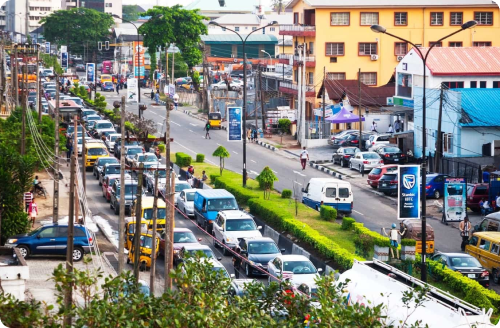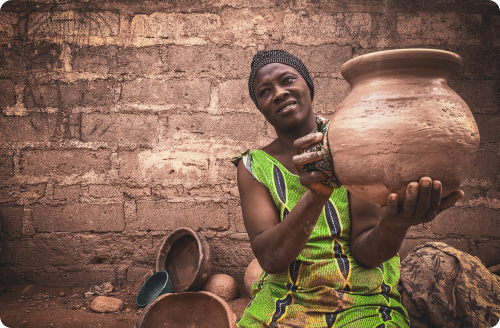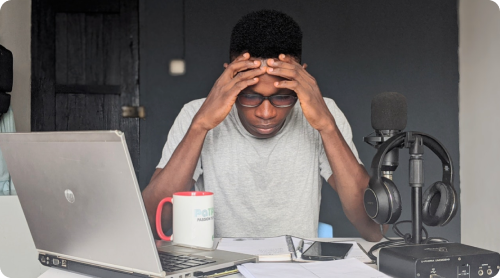Nigeria is arguably the heartbeat of Africa. It’s been considered one of Africa’s most populous nations on earth and the seventh most populous country in the entire world. With so much history, global relevance, and cultural richness, there is so much to learn from the country’s rich heritage and its beautiful people. Yet, there have been a lot of widely spread misconceptions and myths about this promising land of greatness which has caused certain stereotypes and misinformation to the world at large.

Myth 1: It’s always hot in Nigeria
Whoosh! Yeah, it’s mostly hot but not always hot in Nigeria. Although, the Sahara Desert in Africa makes up about one-third of Africa’s landmass and Nigeria’s location in the tropics makes it a tropical hot climate with variable seasons, the truth, however, is that not all parts of Nigeria are necessarily hot all of the time. In fact, some parts of Nigeria are really cold like the city of Jos in Plateau State while parts of the far North and South West can be sweltering hot sometimes. The temperature in Nigeria varies according to the season of the year, depending on what part of the country you’re residing in.
Myth 2: Nigeria is most dangerous for foreigners and violence is a major issue
Oh well! Nigerians are not violent people. We are well known for our vibrant, welcoming, free-spirited, friendly energy expressed through diverse creative expressions and widely spread positivity. Nigeria is a nation of believers; a people who believe in fighting for their rights and equality despite several harsh political conditions, injustice, and poor access to basic fundamental human rights.
It is widely believed that there is much violence between the two major religions in the country, Islam and Christianity. However, identifying religion as the cause of violence is quite complex because violence involving religious issues can be political, economic, or social, as with land disputes and herdsmen conflicts. But, the people themselves are not in any way apprehensive or violent towards people.
Also, the security state of the nation is usually seen as unsafe for foreigners, tourists, and investors who wish to live, conduct business, or travel in the country. This perception has been exaggerated by international news agencies portraying Nigeria as a battleground. However, findings show that African nationals are the primary targets of violent incidents in Nigeria, not foreigners.
Myth 3: Nigeria is the poverty capital of the world.
Oh no… That may not be true! Although in 2020, new research was reported by The World Poverty Clock that Nigeria is now one of the poorest nations of the world I’m quite curious about it because actively Nigeria boasts to be the largest economy in Africa and it is projected to rank among the world’s top ten economies by 2050.
Nigeria also has an abundance of natural resources, including oil and gas. The country holds the largest natural gas reserves on the continent and is Africa’s largest oil and gas producer. So, why is Nigeria poor?
If the country is failing and being ranked among the poorest nations of the world, then it solely lies back to the mismanagement of resources that we have, the oil business, the increasing rate of unemployment as a result of its large population, and the presence of corruption. However, our land is very rich and fertile for wealth creation processes. We are just in dire need of good management and good leaders.
Myth 4: Nigerians are opportunists and they lack Innovation.
First of all, Nigerians are known to be intelligent and the most hard-working people in the entire world. We are known for a unique Nigerian spirit and for the “can-do” and “never-say-never” attitude which is often complemented by a friendly, accommodating, forbearing, and resilient spirit. Each Nigerian is unique, socially inclined, and technologically relevant as it pertains to creativity and innovation.
For record purposes, the first African to win a Nobel Laureate in 1986 was Wole Soyinka, a Nigerian who became the first black African playwright to be awarded the Nobel Prize in Literature. Nigeria is also home to the second largest film industry in the globe while also being the fashion, technology, and creative hub in Africa to mention but a few. The young people in Nigeria are doing very well across the world and have found a way to write their name in gold and put their selves on the Global map.
Myth 5: Bad things happen a lot in Nigeria and it’s unsafe to live in.
Every 60 seconds, bad things happen all over the world, not just in Nigeria or Africa. The assumption is that the government is bad, corruption is on the increase, and most politicians are evil people who become members of cult societies in a bid to gain political power. Well, while an awful number of bad things may be happening generally in the country, a whole number of good and wonderful things happen too! So, let’s correct that mindset and misconception because it’s not all doom and gloom.
We hope you debunk some of these myths and misconceptions that have been falsely spread about Nigerians across the world and learn to embrace who Nigerians are, the authenticity in their stories, and the uniqueness in their paths. So, when next you see a Nigeria, we want you to give them a very big hug on our behalf because most of them have been through a lot yet they are still standing tall and keeping the momentum going. That’s the Naija spirit!




